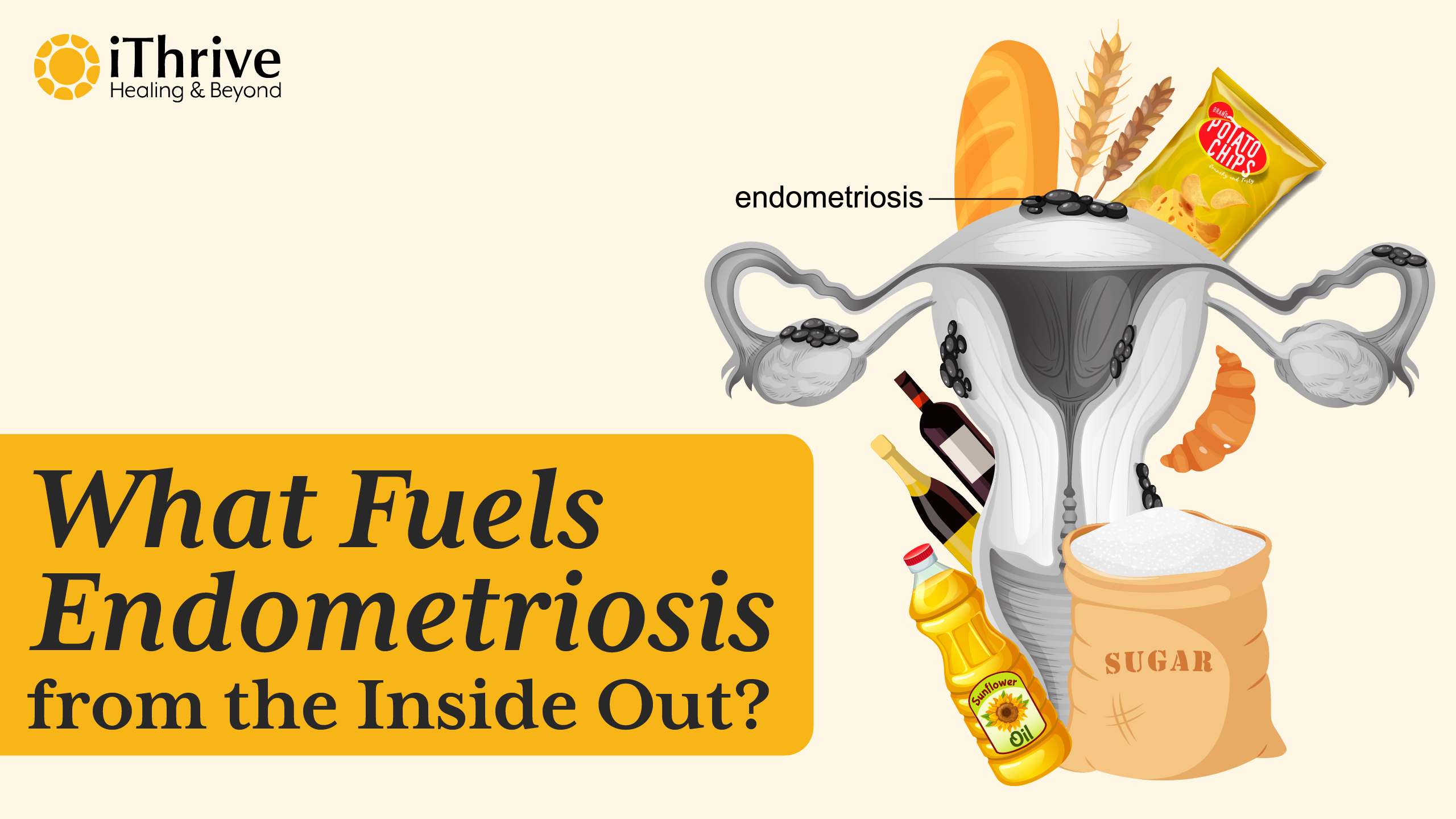Introduction
The thyroid gland, a small butterfly-shaped organ located in the lower front of the neck, is a powerhouse for regulating the body’s metabolism. The thyroid gland has a potential impact on how our body converts food into energy, influencing everything from heart rate to weight.
Good thyroid health helps produce the right amount of hormones to keep metabolism running smoothly. However, when the thyroid malfunctions, it can lead to various health issues, including weight management problems. This blog will provide insight into the intricate relationship between thyroid health and weight management. The blog will also shed light on how thyroid disorders affect our weight and give practical advice to help you maintain a healthy balance if you are dealing with hypothyroidism, hyperthyroidism, or weight gain issues. If you want to heal with a functional nutrition approach, book a consultation with iThrive today and take the first step towards a healthier and happier you.
Understanding Thyroid Gland
The thyroid gland produces primarily two hormones: thyroxine (T4) and triiodothyronine (T3). These hormones play a vital role in regulating the body’s metabolism.
- Thyroxine (T4): The thyroid gland produces T4 hormone in larger quantities. However, T4 is relatively inactive on its own. It serves as a precursor to T3, which means it must be converted into T3 to become fully active.
- Triiodothyronine (T3): It is produced in small amounts and is considered to be a more active hormone. It plays a crucial role in regulating the body’s metabolism by influencing how your body uses energy. This hormone affects almost every physiological process in the body including growth and development, heart rate, and temperature of the body.
Impact of T3 and T4 on the metabolism
· T3 and T4 increase the basal metabolic rate which is the amount of energy your body needs to maintain basic physiological functions at rest. This means they help in determining how quickly or slowly your body burns calories.
· These hormones also stimulate protein synthesis and increase the breakdown of fats to help maintain muscle mass and reduce fat stores.
· These hormones also influence the heart rate. For example, higher levels of thyroid hormones can increase your heart rate and make you feel warmer, while lower levels can slow your heart rate and make you feel colder.
· When the thyroid gland produces the right amount of T3 and T4 the body’s metabolism functions efficiently and helps in maintaining a healthy weight and energy levels.
Therefore, understanding the role of thyroid hormones provides insight into thyroid health in weight management.
Hypothyroidism and weight gain
Hypothyroidism is a condition where the thyroid gland is underactive and does not produce enough thyroid hormones, specifically free T3 and free T4 as per functional nutritional ranges. With insufficient thyroid hormones, the metabolic rate decreases, which means the calories burn very slowly and leads to weight gain even if the diet and physical activity levels remain the same. The calories that the body consumes are stored as fat rather than being used for energy. This, as a result, increases body fat, particularly around the abdomen. Hypothyroidism can also cause the body to retain fluids, contributing to weight gain and a feeling of bloating.
The common symptoms of hypothyroidism are:
- Fatigue
- Unexplained Weight Gain
- Difficulty Losing weight
- Dry skin
- Hair loss
Hypothyroidism is typically diagnosed through blood tests that measure the levels of ultrasensitive thyroid-stimulating hormone (TSH) and thyroid hormones (free T3 and free T4). Elevated TSH levels and T4 levels indicate hypothyroidism.
Hyperthyroidism and weight loss
Hyperthyroidism is a condition where the thyroid gland is overactive and produces lots of thyroid hormones, specifically high T3 and T4 but low TSH. Hyperthyroidism also increases the metabolism in the body, which means the calories burn very fast and lead to weight loss even if the diet and physical activity levels remain the same. Despite the increased calorie burn, some people dealing with it may feel hungrier and consume more food. Hyperthyroidism can also lead to muscle loss as our body breaks down muscle tissue for energy.
The common symptoms of hyperthyroidism are:
- Weight loss
- Rapid or irregular heartbeat
- Increased sweating
- Fatigue
- Nervousness
- Swollen thyroid gland
Hyperthyroidism is typically diagnosed through blood tests that measure the levels of thyroid-stimulating hormone (TSH) and thyroid hormones T3 and T4. High levels of T3 and T4 indicate hyperthyroidism.
Steps to Take Control of Your Thyroid Health
Focus on diet
· A proper and balanced diet is very important for supporting thyroid health and managing weight.
· Someone dealing with thyroid should avoid all inflammatory foods like bakery products, fried foods, sugar, alcohol, and packaged snacks. Consuming these foods can make your conditions worse. Therefore to deal with thyroid health one needs to focus on whole foods that are unprocessed and provide essential nutrients without empty calories. Some of the whole foods include fruits, vegetables, whole grains, pulses, etc.
· These people should also start incorporating lean protein into their meals. Some of the lean protein sources are chicken, fish, tofu, and legumes. Protein is very crucial for muscle maintenance.
· These people should start consuming seafood, as they are a good source of iodine, which plays a crucial role in thyroid hormone production.
· You should avoid all the dairy products, processed foods, and junk foods that are the main reason for the inflammation in the body.
Engage in physical activities:
· Physical activity is very important to heal your disease. Consistency in physical activities helps in managing weight and overall health.
· Engaging in cardio exercises like running, walking, and swimming can help burn calories faster for those who are dealing with hypothyroidism.
· Strength training helps those dealing with hyperthyroidism. Exercises like weightlifting or body weight help preserve muscle mass and boost metabolism.
Consult a Professional:
· In today’s world, relying only on conventional medicine to treat thyroid cannot be the best approach.
· It is very important to focus on the root causes and not only on the symptoms. Consultation with iThrive can help you get the proper guidance towards your healing journey through a functional nutrition approach.
· They start working on your health by analyzing the root causes of your disease and provide customised protocol which includes supplementation guidance, diet recommendations, lifestyle interventions, continuous support, and much more.
Subscribe to our newsletter and receive a selection of cool articles every week




.png)


.webp)

.jpg)





